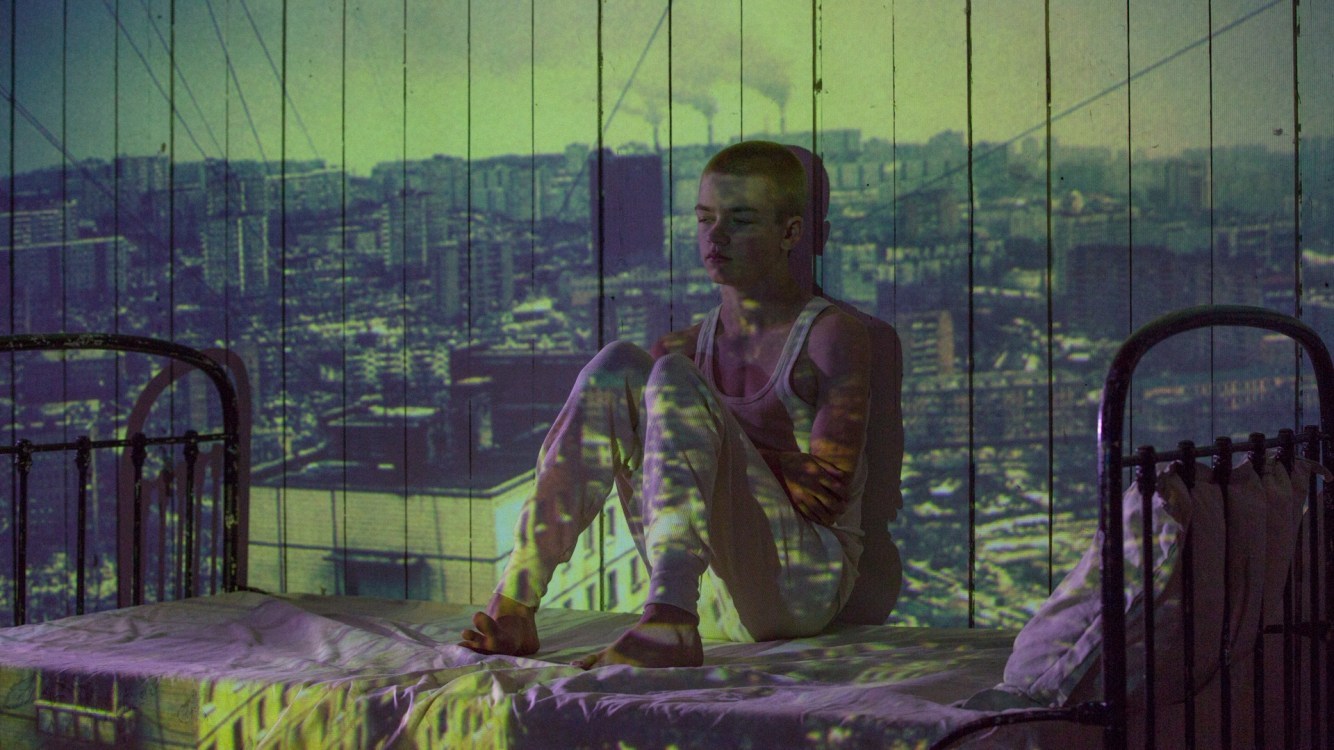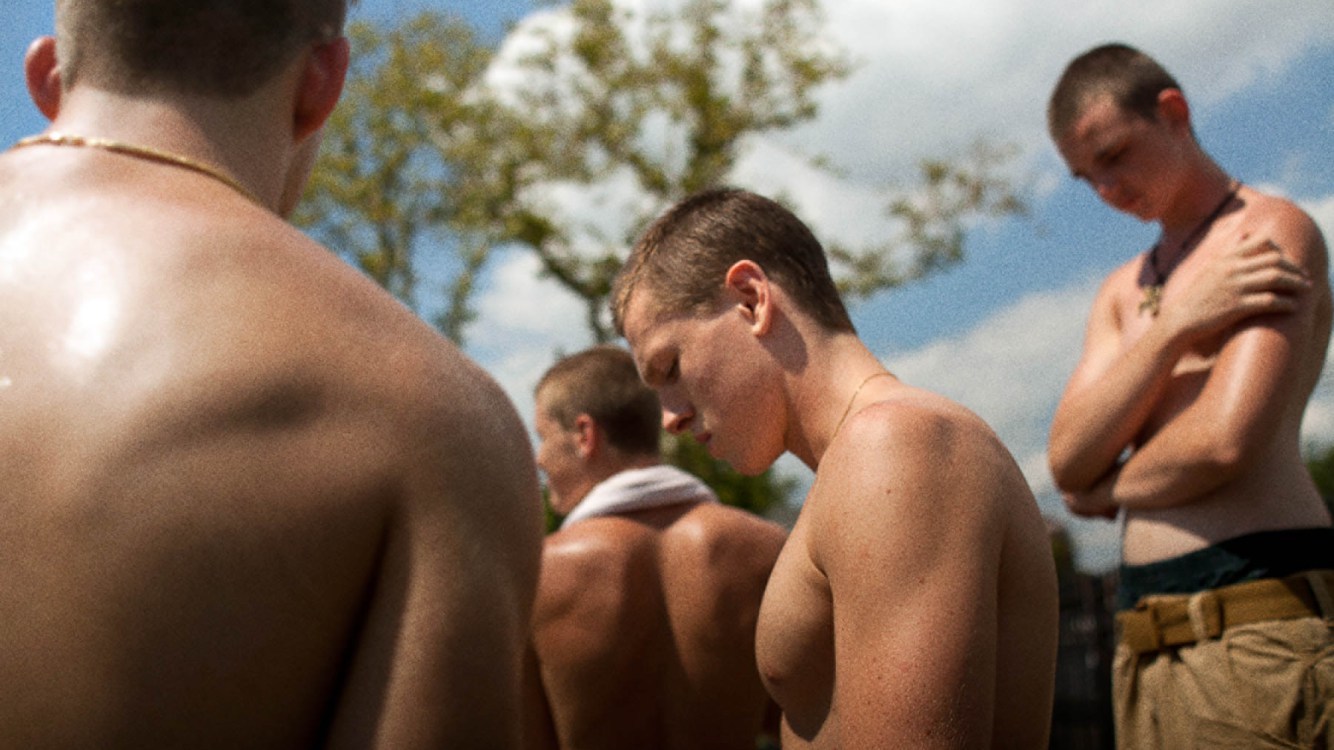Provincetown is one of America’s oldest queer, arts-first communities. Tennessee Williams, Norman Mailer, Tony Kushner, Nan Goldin, Cookie Mueller, and of course, John Waters, have all retreated here. So it’s unsurprising that at the Provincetown International Film Festival, one can usually find a healthy helping of LGBTQ+ movies. But during this year’s fest — the 19th iteration — we discovered a wealth of films that capture queer perspectives and stories from across the globe.
Documentaries including The Death and Life of Marsha P. Johnson (about trans rights activist Marsha P. Johnson), Chavela (about Chavela Vargas, the Mexican musical maverick and Pedro Almodóvar muse who won Frida Kahlo’s heart), and Susanne Bartsch: On Top (about the NYC nightlife maven behind legendary AIDS benefit the Love Ball) remind us of the fearless, pioneering figures who advanced queer liberation through creativity. Narrative films like Signature Move (which follows the budding romance between a Pakistani Muslim and Mexican-American woman) and After Louie (in which Alan Cumming stars as an AIDS survivor who begins a relationship with a younger man) provide fresh perspectives on the contemporary queer experience. Notably, many of the most exciting films were youth-fueled. Here are five standouts.
Beach Rats
Eliza Hittman nabbed the Sundance Film Festival’s Directing Award for her sophomore feature Beach Rats earlier this year. The film follows 19-year-old Frankie (played by breakout British actor Harris Dickinson), who lives in South Brooklyn by the beach with his mom, sister, and dying father. This quietly suffocating home life leads Frankie to the Coney Island boardwalk, vape shop, and handball court with his equally aimless pack of dudes. Frankie has more trouble scoring weed than attracting girls, but at night he surfs hookup websites and cruises. As he often repeats to the queer men he video chats with (but never to his hetero-masculine pals), he’s not exactly sure what he’s into sexually. In the world he inhabits, exploring these desires openly and without judgement isn’t on the menu. Beach Rats won’t jerk your heartstrings as hard and fast as Moonlight, but the questions it raises about the limitations men place upon themselves and each other are valuable ones. And with Wim Wenders and Agnès Varda collaborator Hélène Louvart on DP duties, the Super-16 film is a compelling visual story.
God’s Own Country
Director Francis Lee also won at Sundance (scoring the World Cinema Directing Award) with a film that’s being billed as the British Brokeback Mountain, with an almost documentary-like feel. A reserved and rugged young sheep farmer works to support his family after a stroke impairs his father. The burden of his labor, and the isolation of the Yorkshire countryside he inhabits, closes 25-year-old Johnny off emotionally. That is, until a gentle Romanian farmhand named Gheorghe is hired to help the family during lambing season. When the two men head up into the mountains, Gheorghe teaches Johnny about the importance of tenderness — through his careful deliverance of newborn lambs and his own intimate touch. The visuals capture Yorkshire’s natural beauty and harshness, re-emphasizing Johnny’s internal struggle.
Seventeen
Earlier this year, i-D spoke with young Austrian director Monja Art about her debut feature, Seventeen (or Siebzehn). The film follows Paula, a 17-year-old idling away her final high school days before the freedom of summer arrives in her tiny Austrian town. She’s in love with Charlotte, but her struggle doesn’t arise from a crisis of sexual identity — the problem is that Charlotte has a boyfriend, Michael. While Charlotte feels torn between the two, another girl, Lilli, is chatting up Paula. Art told i-D that the film isn’t a coming out story. Growing up in Austria in the 90s, she felt what many of her young actors did: the naturalness of same-sex attraction and fluidity. Seventeen is about negotiating those desires, fantasies, and expectations, and facing difficult realities. “I was interested in the manic-depressive side of youth. On the one hand, everything seems possible when you are young, and on the other hand the smallest things can totally throw you off track. One missing ‘Like’ on Facebook can lead to days of feeling down. Those mood swings are very specific for the teenage years,” Art explained. “Also, this is a time that is already being romanticized while it is happening. Because you are aware of the fact that you will never be able to go back. You are constantly reminded that you are in the middle of this significant time that will never be repeated.”
The Wound
With his first feature, director John Trengove casts a different lens on the coming-of-age story. The Wound, a narrative film, follows South Africa’s Xhosa ethnic group as its young men embark on ukwaluka — a physically and psychologically demanding initiation ritual. Teen initiates leave their families and set off into the mountains of the Eastern Cape province to be circumcised; the subsequent healing period involves fasting, isolation, and tests to prove their corporal and spiritual stamina. A wealthy father hires Xolani — a young factory worker who returns to the annual ritual each year — to mentor his “soft” city-slicker son along the difficult journey into manhood. Both are closeted, but mutual recognition doesn’t lead to bonding or even tacit solidarity in this often harrowing story. The Wound captures a little-filmed part of South Africa with beautiful widescreen cinematography. It provides unique insight into an insular tradition by interfacing with economic class, the taboo of homosexuality in South Africa, and the multiple meanings of manhood.

Little Potato
Wes Hurley’s autobiographical short earned the Seattle filmmaker the Short Documentary Award at this year’s South By Southwest Film Festival. Produced on a budget of just $2,000 — and originating from a viral essay Hurley published in the Huffington Post four years ago — Little Potato recounts his trans-continental youth. Growing up in Soviet Union Russia, Hurley knew he was gay from an early age, but cultural attitudes about queerness made life challenging, and dangerous. “I heard both my peers and adults say that pediks [a derivation of pedophile, ascribed to queer people] are viler than serial killers and that anyone admitting to be one deserves to die a terrible death,” Hurley wrote. His open-minded mother devised an escape plan: to make it to the States, she became a mail-order bride. Yet in their Pacific Northwest home, the mother and son faced unexpected oppression by the new man in their life. The short is superb, affirming, and well worth seeing.
Credits
Text Emily Manning
